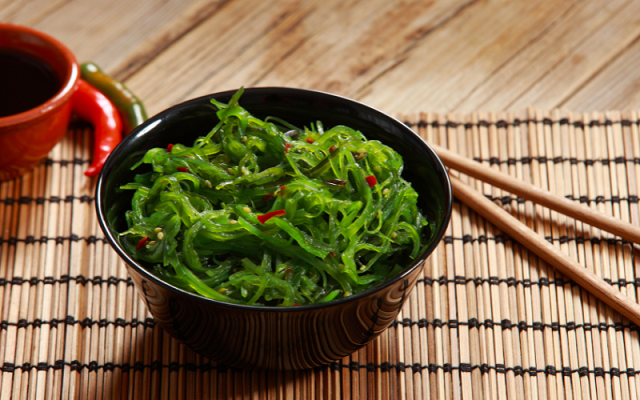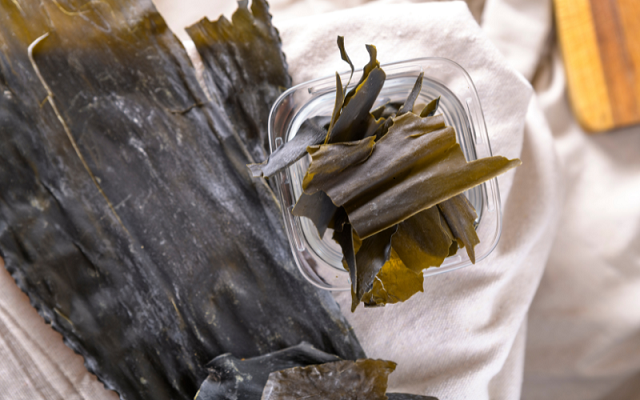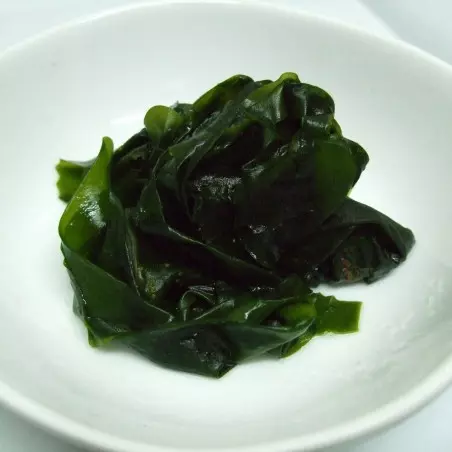Seaweeds such as nori, kombu, wakame, and spirulina are packed with vitamins, minerals, proteins, and antioxidants. Additionally, they are a natural source of iodine, an essential element for the thyroid to produce thyroid hormones.
Iodine, the Pillar of the Thyroid
The thyroid, a key endocrine gland, regulates various bodily processes, including metabolism. Thyroid hormones depend on iodine, highlighting its vital role.
Concerns Related to Excess Iodine
The major concern around seaweeds and the thyroid lies in their high iodine content. There is a fear that excessive iodine consumption could disrupt the thyroid, leading to hypothyroidism (underactive thyroid) or hyperthyroidism (overactive thyroid).
For the vast majority, moderate consumption of seaweeds is safe for the thyroid. In fact, they can be beneficial by providing the necessary iodine, as long as you maintain a balanced diet.

Convincing Scientific Evidence
Diversify Your Diet
Several studies in the field of endocrinology and metabolism confirm that including a variety of foods in your diet promotes a healthy nutritional balance, thereby reducing the risk of thyroid disruption.
To prevent thyroid problems, it is recommended to avoid goitrogenic foods such as cabbages, millet, radishes, turnips, sweet potatoes, soybeans, peanuts, and millet. These foods can slow down the functioning of the thyroid gland and prevent the absorption of iodine, which is essential for the production of thyroid hormones. It is also advised to avoid soy in case of iodine deficiency. However, cooking deactivates the goitrogenic effects of these foods.
Iodine-Rich Foods to Favor
To promote thyroid health, it is recommended to favor iodine-rich foods such as seafood, fish, seaweeds, dairy products, eggs, and certain types of iodized table salt.
Preparation of Iodine-Rich Omnivorous Meals
Ideas for iodine-rich meals include seaweed salad with seafood or fish, sushi or makis made with seaweed and fish, grilled or baked fish with vegetables, and plain yogurt with iodine-rich fruits. Cooking deactivates the goitrogenic effects of certain foods, so it is recommended to cook foods appropriately.
Iodine-Rich Vegan Meals
For vegan meals rich in iodine, seaweed is an excellent source. They can be incorporated into salads, vegan makis, or in tartare. In the absence of seaweed consumption, vegans may consider iodine supplementation to ensure they meet their nutritional needs.
Moderate Portions
A study from the "British Journal of Nutrition" (2003) showed that moderate iodine consumption from seaweed was not associated with thyroid problems. WHO recommendations suggest one portion of seaweed per week as a safe limit.

Consult a Health Professional
The guidelines from the American Thyroid Association emphasize the importance of consulting a health professional for individualized advice in case of thyroid concerns.
Conclusion
In summary, seaweed generally poses no risk to the thyroid, even for those with thyroid disorders. With moderate consumption and a balanced diet, seaweed can not only be safe but also actively support thyroid health. Enjoy the nutritional benefits of seaweed with confidence to keep your thyroid healthy.
Pr. Hacène FRIH
Bibliographic References
• Taga, I., Sameza, M.L., Kayo, A.V., & Ngogang, J. (2004). Evaluation of iodine content in food and soil in certain regions of Cameroon.
• Habimana, L. (2013). Impact of iodine deficiency on maternal and neonatal thyroid function in Lubumbashi: an epidemiological study.
• Cléro, É. (2012). Anthropometry, diet, and risk of differentiated thyroid cancer in the Pacific Islands.
• Marchand, M., Comparini, C., & Lesueur, M. (2016). Seaweed as health and dietary food - Which target consumers? IDEALG Phase 3.
• Schmid, S., Ranz, D., He, M., Burkard, S., Lukowicz, M.V., Reiter, R., Arnold, R., Deit, H.L., David, M., & Rambeck, W.A. (2003). Marine algae as a natural source of iodine in the feeding of freshwater fish: a new possibility to improve iodine supply for humans. Revue De Medecine Veterinaire, 154, 645-648.

























